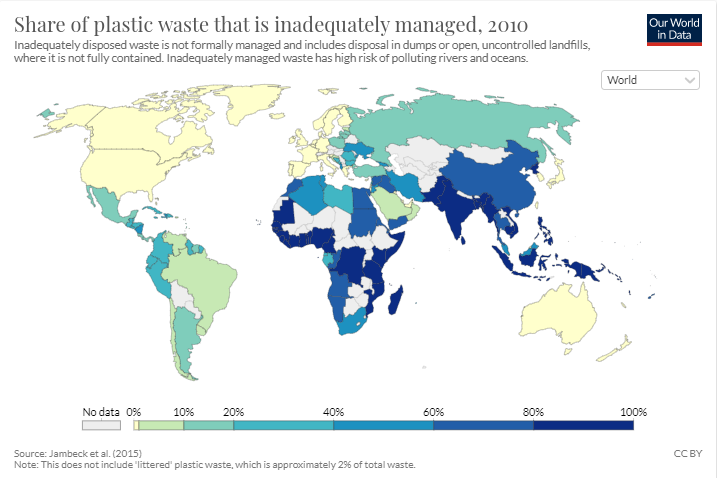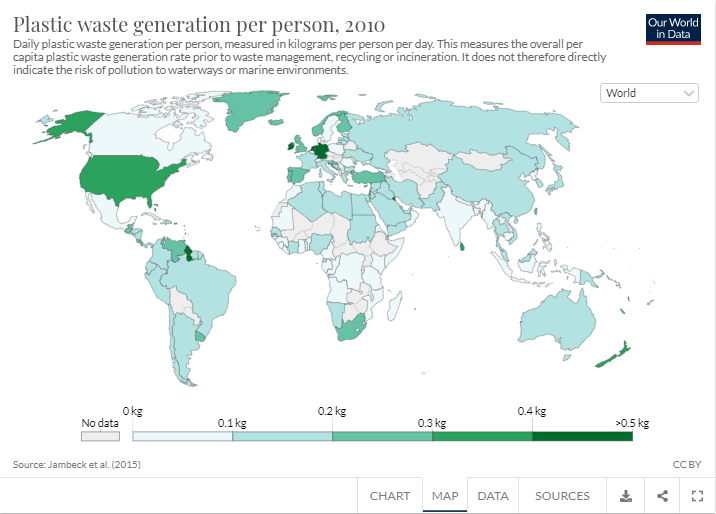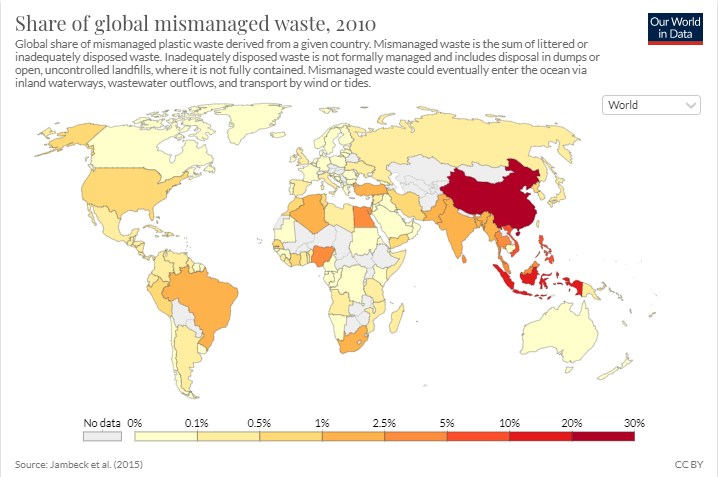Any business seeking to enter a new location would be advised to conduct market research to understand the opportunity costs for every potential decision. World Trade Organization (WTO) data is particularly useful for an export-oriented company and provides an overview of possible markets. Entering a new region also brings the challenge of overcoming being unknown to potential clients. A communications strategy that takes into consideration local preferences and needs is vital to growing a business in a new position. To succeed in exporting their business abroad, Ganamos Reciclando will need to understand each potential location’s economic situation and develop a marketing plan for the new region.
The overall worth of commodity trade grew by ten percent in 2018. Moreover, apparel was the most effective good amongst manufactured products, with an expansion of 3.3 percent in 2018 (WTO, 2019). Furthermore, global consumer trends are sustainability, mindful consumerism, and recycling. Therefore, the Spanish company Ganamos Reciclando’s business idea of recycling is especially relevant in the modern economy.
However, according to the most recent WTO report, Spain’s position within the World’s leading traders of goods and services had declined (WTO, 2019). On the other hand, over the preceding ten years, Hong Kong, China, India, Mexico, and Ireland increased their positions the most in the world rating amongst the highest 20 traders of goods and services.
Thus, to establish the orienteer for a small company’s future market development, it is essential to investigate the market. In particular the economic growth, import abilities, and trade of different regions and specific countries. Asia reported the most significant territorial trade increase from 2008 to 2018 (WTO, 2019).
Moreover, in 2018, its commercial flows were 1.5 times more prominent than in 2008 (WTO, 2019). Additionally, China, Vietnam, and India were among the most influential traders in all Asian markets (WTO, 2019). Expanding localized value chains in service and telecom gear profoundly added to the speed of extension of markets such as Vietnam.
Moreover, the imports of South and Central America rose 10 percent, following an advance in the four major economies’ domestic interest (WTO, 2019). North America and Europe encountered similar growth models in commodity trade. In Europe, it grew by almost 10 percent in 2018, while North America’s growth maintained following a setback in the previous years (WTO, 2019).
However, it showed the lowest increase in all areas. In terms of trade, EU exports of products to North America and Asia have grown. Overall, developing economies’ exports and imports grew faster than those of developed ones and the World generally. Numerous growing economies have witnessed robust development in merchandise commerce exports throughout the last ten years. These include “Burkina Faso, Cambodia, Ghana, Guinea, Lao People’s Democratic Republic, Mongolia, and Rwanda” (WTO, 2019, p. 59).
Emerging markets in Asia were the central leaders of overall growth. Their most recent part in world services imports and exports approached almost 25 percent.
Therefore, after analyzing economic export, import, and trading trends, the fastest-growing markets today are the Asian and Middle Eastern. However, the North American economy also remains strong with broader import potential. Moreover, recycling and sustainability are more predominant in Western markets. In contrast, some parts of Asian and African countries tend to move toward this direction slower (Jambeck et al., Figure 1, 2015). However, countries such as South Korea and Japan seem cautious about this trend.

Overall, Ganamos Reciclando has to make an important decision, whether they want to focus on a safe North American market. This region has an already established need for recycling and produces much waste, including plastic per person (Jambeck et al., Figure 2, 2015). However, the downside of it is the expenses associated with starting a business in a country with a relatively high GDP per capita.

Alternatively, the small Spanish business can look into growing within Asian markets, particularly China, as there is a need for recycling since it currently generates a dangerous amount of waste (Jambeck et al., Figure 3, 2015). However, the possible demand for recycling-related businesses might be lower at first. Overall, two of these markets are the best choices for the Ganamos Reciclando, as these countries are part of WTO, which implies lower trade tariffs.

Furthermore, Ganamos Reciclando’s business model is based on a franchise contract foundation, reverse vending machines (RVMs) for various businesses, and public institutions. The buyer returns the empty bottle, and the device recognizes the kind of vessel by its barcode (European Commission, 2018). Moreover, it gives in return money or a discount voucher that can be spent in the store or a company. It operates similarly to a deposit-refund order, but it is entirely autonomous from contractors’ policies (European Commission, 2018).
Therefore, the first step for a communication plan is to cooperate with future business partners, suggesting those who operate a company in a target country, mainly because the firm is contract-based. Thus, a company cannot start a business without cooperation and partnership as it is dependent on other institutions in its core. Moreover, this can save the business’s time and finances. For instance, a foreign company might communicate the most convenient way of how to work with administrative channels.
Second, it is essential to learn more about cultural differences that should be considered while operating with the local communities and media. Market research suggested that China, despite producing large amounts of waste, is not yet successful in recycling. Therefore, for a company to succeed, it is crucial to organize PR campaigns connected to raising awareness about the importance of recycling. The Ganamos Reciclando’s appeal to the consumers is in providing monetary incentives after they recycle.
Therefore, finding partners that can provide the most considerable discounts can be the first step in winning the chosen country’s audience. Moreover, while choosing partners abroad, the company should focus on businesses that can benefit from the plastic reduction, for instance, because they produce this type of waste. The Ganamos Reciclando can also cooperate with public institutions that are eager to educate the citizens about the importance of sustainability.
Lastly, the existing financial and marketing practices are not an optimal way of achieving high-quality distribution and provisioning terms based on the perspective of critical marketing. Marketing, as a tool, is widely abused by various dishonest, unsustainable, and dangerous institutions. For instance, dark marketing is described as the utilization of marketing systems and applications to the areas of loss, murder, and the superficially objectionable (Tadajewski, 2018).
Therefore, such criminal organizations as human traffickers are using the techniques of this tool. Moreover, the presumption that the primary goal of marketing is to represent consumer sovereignty is questionable. Marketers tend to create and adjust consumer demand and not simply provide to the impulses of the public.
In conclusion, Ganamos Reciclando has two options for expansion, North America, based on strong import potential, and Asia, based on possible market growth. The North American market would be a safe but expensive option, while the Asian market is characterized by higher risk and more economic growth.
Regardless of the region chosen, Ganamos Reciclando needs to find local partners to cooperate with and assist with starting a new environment. Ganamos Reciclando needs to create a marketing strategy that emphasizes the significance of recycling and draws in clients with enticing discounts to generate interest in its products.
Reference List
European Commission. (2019) Reducing marine litter: Action on single use plastics and fishing gear. Web.
Tadajewski, M. (2018). Critical reflections on the marketing concept and consumer sovereignty. The Routledge Companion to Critical Marketing, 196–224. Web.
World Trade Statistical Review 2019. (2019). Web.